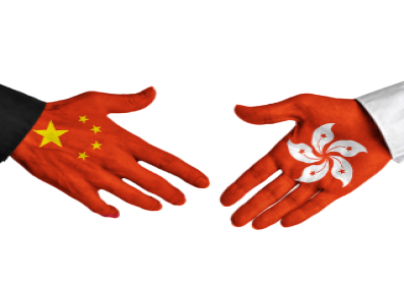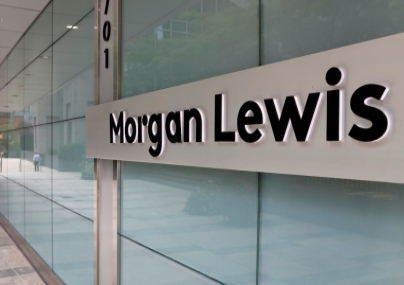By Emma Farge
Top Chinese refiner Sinopec's Addax Petroleum is embroiled in a legal dispute with Gabon over an oilfield in which claims and counter claims total more than $1 billion, sources familiar with the confidential proceedings said.
The case adds to questions about whether African enthusiasm for Chinese investment in the continent's resources is fading after an iron ore project in Gabon was placed under review and separately three Chinese licences were revoked in Zambia's coal sector.
Gabon conducted audits in 2011 and 2012 of the hydrocarbons sector, which pumps around 240,000 barrels per day and accounts for 80 percent of the Central African country's export earnings.
Gabon's ministry of oil transferred the Obangue oilfield from Addax to the two-year-old Gabon Oil Co in January, according to the state-oil firm's website.
Commenting on the dispute, senior officials at the oil ministry alleged in May that Addax had failed to pay customs duties and comply with other laws and said Addax could lose its licence to operate in the former French colony.
Addax sources have previously denied Gabon's accusations although a spokesperson for the company declined to comment for this story.
Now the company, which accounts for around a third of Sinopec's overseas oil production and has five oilfields in Gabon as well as exploration activities, is fighting back in hopes of protecting its other interests in the country, according to a source familiar with Addax's strategy.
Another source familiar with the case said Addax is seeking $330 million in damages from Gabon in the ICC International Court of Arbitration in Paris and Gabon had responded with a claim for $780 million. An official at the secretariat for the ICC court declined to confirm the details of the case.
"Addax blames Gabon for not renewing for a second time its authorisation to operate in the Obangue oilfield," said Jean-Georges Betto, partner of lawyer Betto Seraglini, acting for Gabon's government.
"Gabon considers that Addax did not properly account for the revenues and cost of the oil as per the contract. This explains our huge counter-claim," he added, explaining the details of the case.
An adviser to Gabon's energy minister Wenceslas Mamboundou declined to comment on the case.
In separate proceedings, Addax also brought a suit against Alex Stewart International, which conducted the audit on behalf of Gabon, alleging "defamation, tortious interference with contract and negligence ..." in a U.S. federal court in Washington, according to a court filing seen by Reuters.
Robert Weiner, partner at Arnold & Porter acting for auditors Alex Stewart, said his client had moved to dismiss the case and was waiting for the judge's ruling.
"Our client is just an auditor caught in the crossfire of a major battle between a Chinese oil company and the government of Gabon," Weiner said.
It could be hard for Addax to recover the field, according to Rolake Akinkugbe, head of oil and gas research at Ecobank.
"What will likely make it difficult for Addax is that the state oil firm is already producing there and has that cash flow from the field, so it could prove difficult to claw back their position," Akinkugbe said.
CHINA BACKLASH?
China is eager to secure access to raw materials. Government statistics show that its foreign direct investment in Africa rose to nearly $15 billion in 2011, an estimate that many analysts consider to be conservative.
Addax is the second Chinese firm to face difficulties in Gabon, which put the China Machinery Engineering Corp's Belinga iron ore project on hold in 2012 and introduced a year-long audit, a U.S. State Department report on Gabon's investment climate in 2013 showed.
Gabon is still negotiating with CMEC but it will likely bring in other miners and could break up the vast concession, according to Gabon's deputy minister for the economy.
"What is noticeable is the rampant enthusiasm with which Chinese investors were welcomed in Africa five to ten years ago has largely dissipated," said Robert Tashima, Africa editor at Oxford Business Group.
"They now face more scrutiny and while there are still plenty of new Chinese-backed projects in the pipeline, a number of contracts around the continent have been cancelled or put on hold," he added.
The disputes coincide with broader reform in the oil sector designed to give the GOC greater control and to help boost the former OPEC member's oil production, which has fallen by about a third since its peak of 370,000 bpd in 1997.
Gabon is due to launch a long-delayed deepwater licensing round this month as part of an effort to exploit the country's nearly 4 billion barrels of untapped reserves.
Other companies operating in Gabon including France's Total and Perenco were also subject to audits, according to the U.S. State Department report.
Total did not respond to a request for comment and Perenco declined to comment.
In February, Gabon was struck off a list of countries that are compliant with global standards for the resources sector set by the Extractive Industries Transparency Initiative (EITI) after it failed to submit a report.
"Gabon reaffirms its determination to work for continued improvement of good governance in the management of its raw materials, and its openness to work with any partner who is able to help in the process," oil minister Etienne Ngoubou said at the time.
Only two other countries, Equatorial Guinea and Sao Tome, have previously been delisted from the EITI.
Follow us onTwitter: @ALB_Magazine.


